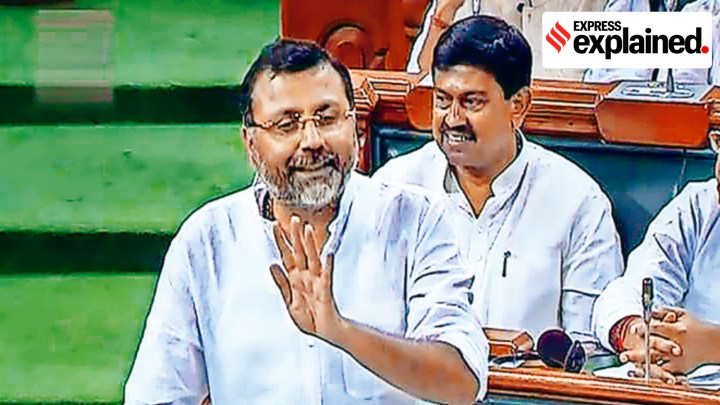October 26, 2023
Upholding Ethical Standards: The Significance of Lok Sabha’s Ethics Committee

Introduction:
- The Lok Sabha Ethics Committee, established over two decades ago, holds a crucial position in overseeing the behavior of members and addressing cases of misconduct. Its role in maintaining ethical standards within Parliament is paramount, despite primarily handling minor offenses.
Historical Evolution of Ethics Committees:
- Origin in 1996: The proposal for ethics panels in both Houses of Parliament was first put forward during a Presiding Officers’ Conference in Delhi in 1996.
- Rajya Sabha’s Pioneering Committee: Vice President K R Narayanan, serving as Rajya Sabha Chairman, instituted the Ethics Committee for the Upper House on March 4, 1997, with official duties commencing in May of the same year.
- Lok Sabha’s Journey: The establishment of Lok Sabha’s Ethics Committee faced initial delays. Following a comprehensive study of legislative ethics practices worldwide, a study group within the House Committee of Privileges recommended its formation in 1997. However, it only gained permanent status in the Lok Sabha in 2015, after its ad hoc inception in 2000.
Procedure for Handling Complaints:
- Complaint Origins: Any individual can file a complaint against a Member of Parliament (MP) through another Lok Sabha MP. The complaint must be accompanied by evidence of alleged misconduct and an affidavit confirming its authenticity. MPs can also lodge complaints without the need for an affidavit.
- Speaker’s Role: The Speaker has the authority to refer any complaint against an MP to the Ethics Committee.
- Prima Facie Inquiry: The Committee conducts an initial inquiry to ascertain if a complaint warrants further examination. It proceeds to evaluate and make recommendations after this stage.
- Report Presentation: The Committee presents its findings to the Speaker, who then seeks the House’s input on whether to consider the report. Additionally, a half-hour discussion on the report can be scheduled.
Comparison with Privileges Committee:
- Overlapping Responsibilities: While the Ethics Committee and the Privileges Committee may occasionally handle similar cases, more serious allegations typically fall under the purview of the Privileges Committee.
- Privileges Committee’s Mandate: The Privileges Committee safeguards the “freedom, authority, and dignity of Parliament,” addressing breaches of privilege by MPs or non-MPs that undermine the House’s authority and dignity.
- Ethics Committee’s Scope: The Ethics Committee primarily focuses on cases of misconduct involving MPs.
The 2005 Cash-for-Query Case:
- Expulsion of MPs: In 2005, a significant event unfolded when both Houses expelled 10 Lok Sabha MPs and one Rajya Sabha MP implicated in the cash-for-query scandal. They were accused of accepting money to raise questions in Parliament.
- Bansal Committee’s Report: The Lok Sabha took action based on the report of a special committee led by Chandigarh MP P K Bansal. In contrast, Rajya Sabha entrusted the House Ethics Committee with investigating the matter.
- Evidence in the 2005 Case: Former Lok Sabha Secretary General P D T Achary noted that the 2005 case was backed by substantial evidence from a sting operation. Establishing a money trail could be the challenge in the recent Bengal MP case.
Conclusion:
- The Lok Sabha Ethics Committee, though historically ad hoc and relatively recent in its permanent establishment, plays a critical role in upholding the ethical standards of India’s parliamentary members. It serves as a guardian of parliamentary ethics, ensuring that members adhere to the highest moral standards while fulfilling their legislative responsibilities. The Committee’s work, while often overshadowed, is integral to maintaining the integrity of the Lok Sabha.
Daily Gist : The Hindu/Indian Express : 30 Jan 2025
January 30, 2025
Gist of editorial : the Hindu/ Indian Express/20 Jan 2025
January 20, 2025
Daily the Hindu/ Indian Express Editorial Gist: 14 Jan 2025
January 14, 2025
